Predictive data quality + adaptive data governance = robust compliance by design

Today, businesses collect and process large volumes of data. The concern of protecting this data, especially personal data, has been around for quite some time. The sheer volume of data and the increased proliferation of cloud technology has brought this concern to the fore again.
When GDPR (General Data Protection Regulation) came into effect in 2016, organizations took time to understand and plan their compliance efforts. But as a lot of other industry or region-specific regulations emerged quickly, organizations did not have enough time to prepare. With huge fines up to 4% of a company’s annual turnover looming large for non-compliance, companies have been turning to automated solutions for compliance. For data-driven companies, this approach means not just meeting the rigorous compliance requirements of today, but being ready for any new or updated regulations in the future.
The intersection of data quality and compliance
Organizations in a hurry to achieve digital transformation often find several parallel initiatives confusing the systems and people alike. Though under the hood, these initiatives address the same issue of making the right data available to the right people at the right time. They also have the common objective of responsive business decisions powered by trusted and compliant data.
The key requirements of data privacy regulations such as GDPR or CCPA (California Consumer Privacy Act) are quite clear. They focus on processing customer requests to access and update their data in a given timeframe. If you work back from this mandate, two essential features become apparent – appropriate workflows to process the requests and high-quality data to ensure quick resolution.
Healthcare is a highly regulated industry when it comes to patient data protection. HIPAA (Health Insurance Portability and Accountability Act), as an example, requires protecting sensitive patient health information from being disclosed without the patient’s consent or knowledge. Clean, trusted, and clearly identified sensitive data is central to HIPAA compliance.
For CCAR (Comprehensive Capital Analysis and Review), the regulator evaluates bank-supplied financial data by running through its own internal models. With continuously maintained high data quality and an audit trail, it’s easy to meet the minimum capital requirement under CCAR and similar financial regulatory compliance.
In simpler terms, compliance intersects strongly with data quality, and both get enabled by data governance.
Data quality is its fitness for use. It is a combined measure of quality dimensions, such as completeness, accuracy, consistency, and integrity. Assuring high-quality data builds trust in enterprise data. For data-driven organizations, trusted data is the foundation that drives trusted operations and trusted business decisions.
Stakeholders may ask the following questions:
- How about managing the sensitive and personal data that is part of the enterprise data assets?
- Once the quality is assured, how can this data be handled in a compliant way?
- How can you accelerate reporting for compliance?
- How is it possible to access health records compliantly?
This is where data governance comes into the picture. With data governance, you can drive data quality rules and escalate quality issues to the data owners to deliver complete, accurate, and consistent data. While continuously assuring the data to be “right,” you can automate customer request routing to the “right” data owners for resolution in the “right” timeframe. Data governance enables you to establish enterprise-wide policies and map them to sensitive or protected data classes for access control. With data governance, you can quickly streamline your data quality and compliance management.
The essential role of data quality in compliance
At the core, most privacy compliance requirements focus on identifying, classifying, and controlling access to personal data, such as PII (Personally Identifiable Information) or PHI (Protected Health Information). For example, CCPA mandates consumer rights to know, delete, and opt-out the use of personal information that includes PII. GDPR requires that customers have the right to update and correct their data if inaccurate or incomplete. They also get to control the use of personal data. If the data is high quality, these requirements and the associated efforts are immediately cut down to a few efficient processes.
Financial regulations validate governed operations and compliant use of data. Compliance with BCBS 239 requires strengthening banks’ governance frameworks, enterprise-wide risk data aggregation capabilities, and internal risk reporting practices. Maintaining BCBS 239 compliance is considerably simplified with trusted data, saving a huge chunk of enterprise resources. Consumer banks leverage data discovery and data quality rule enforcement to identify non-valid credit scores and deny loans to reduce their overall credit risk.
Detecting quality issues proactively and acting on them at source is essential to maintaining trust in data. With Collibra’s predictive data quality and observability solution, anomalies are detected early to ensure rapid resolution. The solution helps create baselines and monitor data drift continuously to sort out data inconsistencies. Healthcare providers leverage the ML-driven adaptive rules to successfully combat the loss of patient data quality over time, maintaining high data quality for compliance. Healthcare providers also leverage predictive data quality to identify non-valid ICD (International Classification of Diseases) codes to process the historical data of patients correctly.
You can easily set rules for compliance checks in Collibra, applicable to databases as well as streaming data. Collibra ships around 40 common formats for automatic PII identification, and you can customize them or add more. The PII profiling appears in catalogs and rules tables for checks across the data lake, ensuring the consistent identification of all possible occurrences, as explained here. The self-service data quality empowers the data producers and consumers to maintain data quality across the organization, conforming to established policies. The assured scalability of Collibra streamlines continued compliance with HIPAA, GDPR, CCPA CCAR, BCBS 239, and other regulations.
Constructing a framework built for compliance
In practical terms, a framework built for compliance promotes unified, enterprise-wide, policy-driven data access for both data producers and consumers. It enables shared understanding and streamlined collaboration across the organization. A framework that harmonizes data quality and data governance delivers compliance by design.
Data governance centralizes data quality efforts, builds context around data, and enables ownership assignment for sensitive data assets. Predictive data quality proactively identifies and addresses issues at the source. Its ability to scale and reconcile data as it moves ensures continuous data quality across large and diverse databases. Together, they deliver a framework that assures compliant data usage while being ready for any updates in the regulatory requirements.
Using Collibra data governance and data quality, you can review and activate quality rules and data policies. The harmony helps continuously monitor data for completeness, timeliness, accuracy, and validity to ensure enterprise-wide compliance.
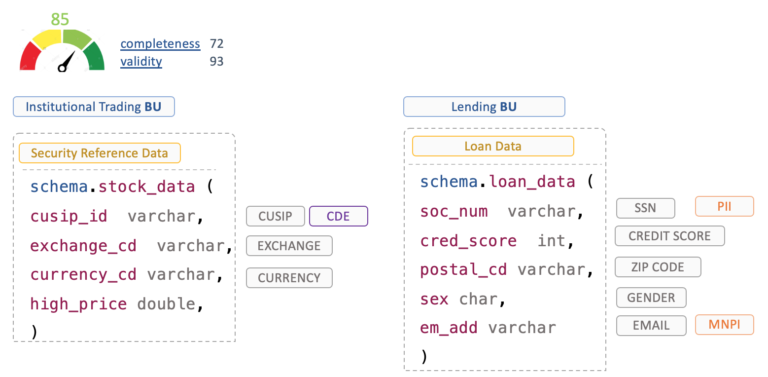
While performing data quality checks, you can identify and automatically mask sensitive information to maintain compliance.
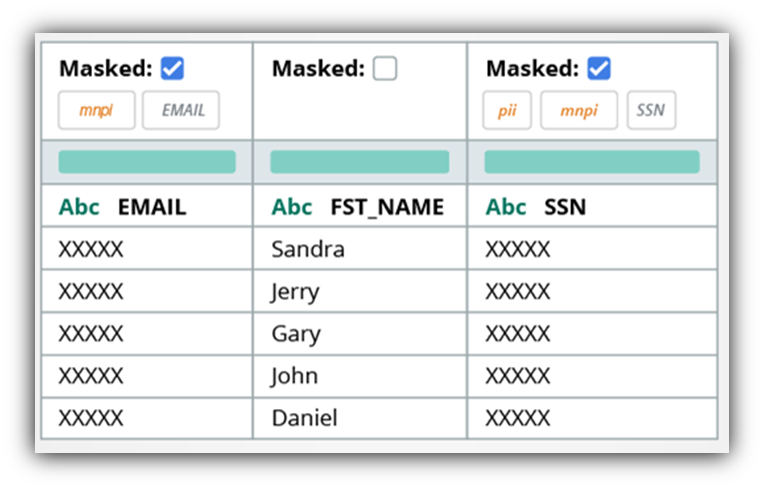
You can leverage rule templates to optimize data discovery and data type enforcement.
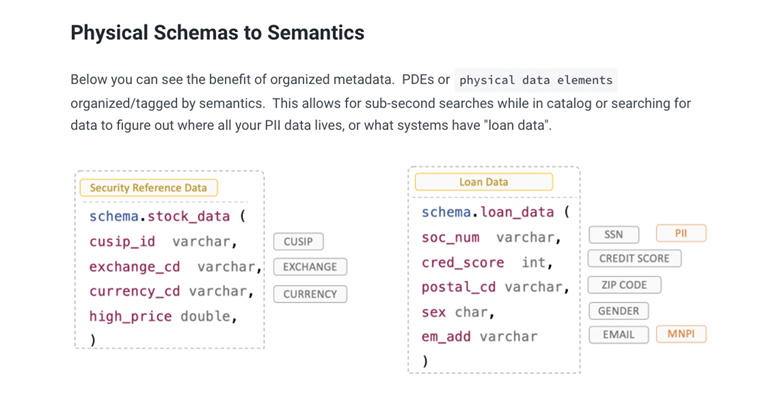
According to reports, firms are forecasting spending in excess of USD 1.4M on GDPR readiness initiatives, and healthcare providers are dedicating approximately USD 39B per year for regulatory compliance. These costs can be quickly brought down by leveraging the intersection of data quality and governance.
Proactively managing data quality and compliance eliminates the risks associated with non-compliance and makes the enterprise future-ready. It improves customer relationships, leading to greater customer loyalty and higher brand equity.
A framework built for compliance leverages the synergy of data quality and governance to continuously validate data for compliance. You can maximize this synergy with the privacy capability of the Collibra Data Intelligence Cloud to deliver the trio of governing, trust, and access.
Related articles

Data QualitySeptember 12, 2024
What is data observability and why is it important?
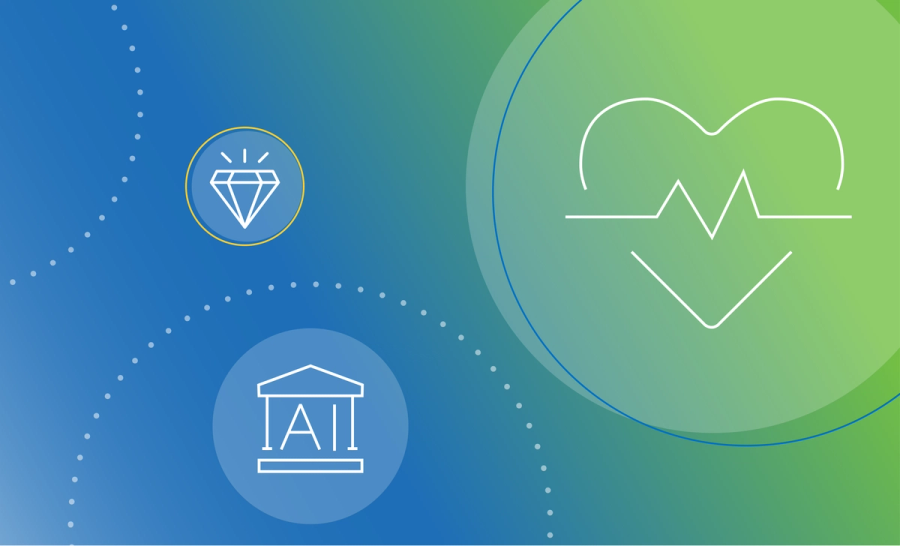
AIJuly 15, 2024
How to observe data quality for better, more reliable AI
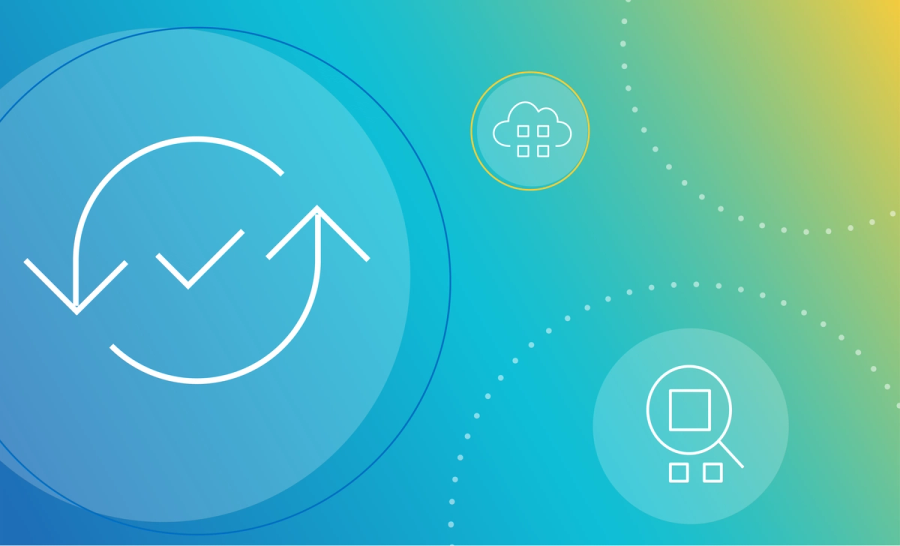
Data QualityNovember 8, 2024
Announcing Data Quality & Observability with Pushdown for SAP HANA, HANA Cloud and Datasphere

Data QualityNovember 16, 2023
The data quality rule of 1%: how to size for success
Keep up with the latest from Collibra
I would like to get updates about the latest Collibra content, events and more.
Thanks for signing up
You'll begin receiving educational materials and invitations to network with our community soon.
